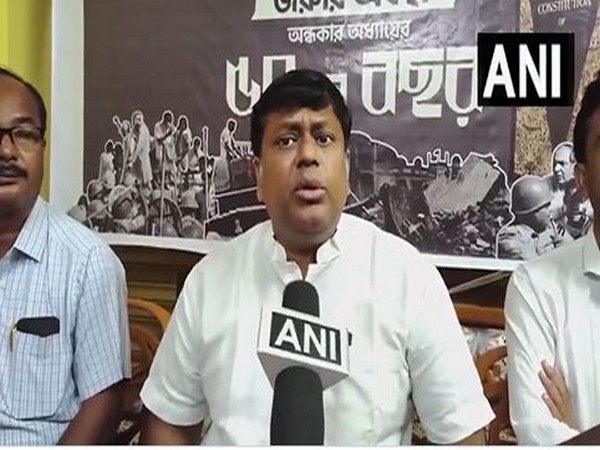50 Years On: Controversies and Commemorations of India's Emergency
As India marks the 50th anniversary of the Emergency, political tensions rise with accusations from BJP leader Sukanta Majumdar against West Bengal CM Mamata Banerjee. The BJP labels the anniversary 'Samvidhan Hatya Diwas', while Banerjee accuses BJP of daily constitutional violations, emphasizing ongoing political disputes.

- Country:
- India
In a politically charged commemoration of the 50th anniversary of the Emergency in India, Union Minister and West Bengal BJP President Sukanta Majumdar launched a scathing attack on Chief Minister Mamata Banerjee. Majumdar questioned Banerjee's credibility in observing the anniversary while accusing her of supporting the historical Emergency declared by Indira Gandhi in 1975. Referring to an incident from a visit by Jayaprakash Narayan to Kolkata, where Banerjee was seen atop his car protesting, Majumdar claimed she supported the Emergency then and is enforcing an 'informal Emergency' now in West Bengal.
The Bharatiya Janata Party (BJP) is observing the anniversary as 'Samvidhan Hatya Diwas' to mark what they refer to as the subversion of constitutional principles. This has drawn a sharp rebuke from CM Banerjee, who disputes the BJP's framing of the event. Banerjee insists on the sanctity of the Constitution as the bedrock of democracy and accuses the BJP of daily assaults on constitutional values and citizens' rights.
During a solemn Cabinet meeting chaired by Prime Minister Narendra Modi, a resolution was passed to honor those who resisted the Emergency's draconian measures. The resolution, introduced by Union Information and Broadcasting Minister Ashwini Vaishnaw, underscored the ongoing importance of protecting democratic ideals and remembered the battles against dictatorial tendencies. In this reflective moment, India revisits its past to draw lessons for the preservation of democratic values in the present.
(With inputs from agencies.)
ALSO READ
High Stakes and High Hopes: BJP's Jiwan Gupta Begins Vote Counting Day with Prayers
Political Turmoil: SP Expels Rebel MLAs Amidst BJP Allegiances
Gujarat bypolls: AAP wins Visavadar assembly seat, BJP retains Kadi assembly seat, say officials.
Gopal Italia Leads in Visavadar Bypoll: AAP Makes Strides Against BJP
AI moral alignment is an illusion without justification democracy and debate










